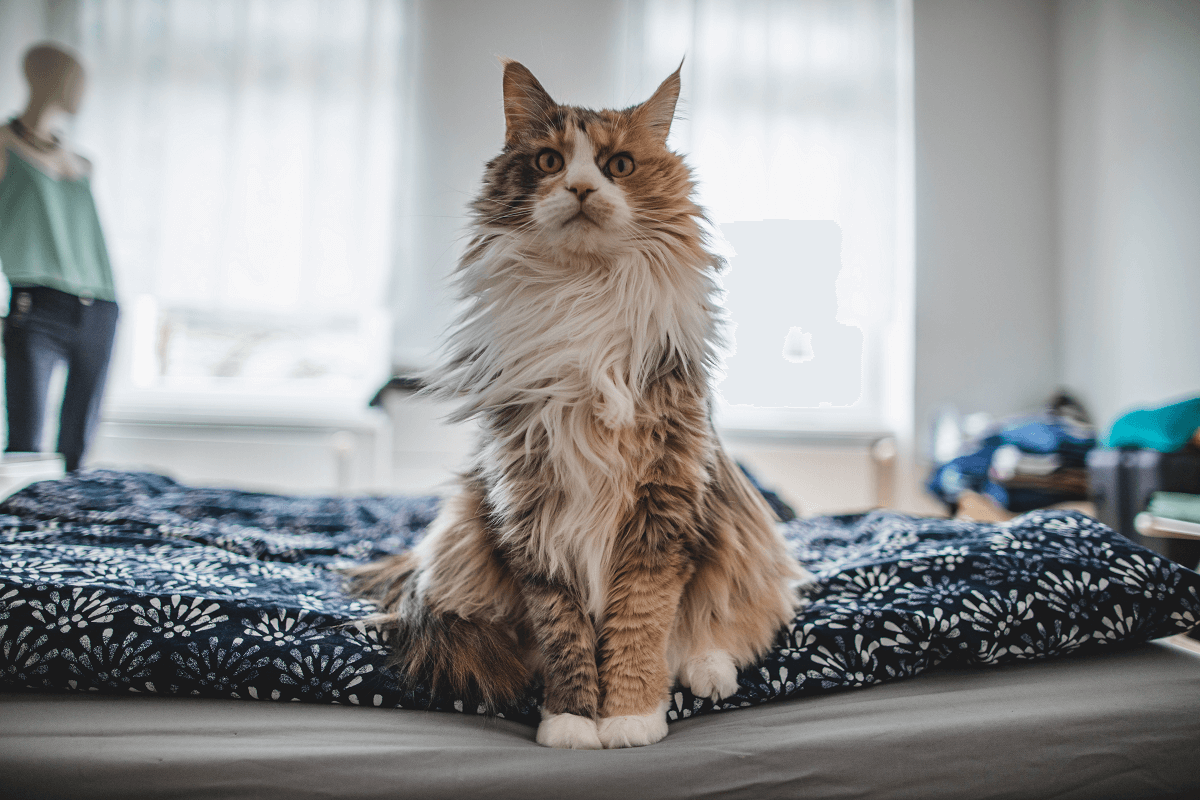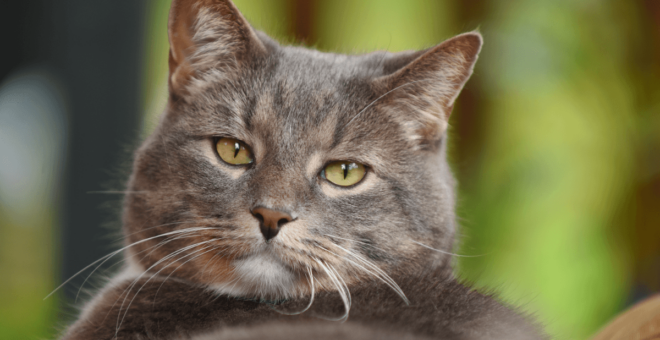Your cat is considered to enter its senior years once they reach 11 years of age – which is around 60 in human years. Just like people, as your cat gets older, they begin to experience a range of age-related changes, including reduced energy, change in appetite, and vulnerability to illness and other health issues.
Read on to find out our tips for keeping your senior cat happy and comfortable as they move into their golden years.
Book in regular health check-ups
Even if your cat seems perfectly healthy, it is still important to book in regular check-ups with your vet. As your cat ages, will require more care and attention to maintain their health and wellbeing.
Senior cats are more likely to develop health issues, such as diabetes, arthritis or kidney disease. However, many of these diseases can either be avoided – or lessened – with some preventative actions. Your vet will be able to recommend how best to keep your kitty in tip top shape, and how often they need a health check, taking into account their age, lifestyle, and any pre-existing conditions.
Preventative dental care is key
As cats age, they become more susceptible to a range of dental issues. This starts well before they become senior in age. Research has shown that after the age of 4, most cats will develop some form of dental disease. If left untreated, this can lead to severe disease and infections, and may prevent them from eating properly. During your cat’s regular check-ups, your vet will thoroughly check for any signs of dental disease and will advise if your cat needs any dental work conducted, such as a dental clean or teeth extraction.
If your kitty needs a dental procedure, your vet will undertake blood tests first to ensure they are fit for surgery. While every procedure has some degree of risk, modern anaesthesia and monitoring systems means that being sedated is safer than ever.
Brushing your cat’s teeth regularly and keeping an eye out for any evidence of dental problems – such as drooling, really bad breath or problems chewing – will all help to keep your cat’s teeth nice and healthy.
Discuss their diet with your vet
As cats age, their nutritional needs can change, so it’s important that you discuss their nutritional requirements with your vet. There are plenty of food options available for senior kitties to support their overall health and wellness. Older cats require fewer calories, however, may need additional support for the joints, digestive system, urinary tract or to help maintain muscle mass.
Cats can sometimes become a little fussy with their food as they get older as their sense of taste and smell can weaken, and their appetite declines. Offering your cat multiple small meals, a day and warming their food up can help to make mealtime more appetising.
Adapt your home environment
Changing a few small things in your home can make a huge difference for an ageing cat.
- Bedding: Older cats tend to sleep more, so it’s important that you offer multiple comfy places for them to take a nap. Place the beds in quiet places where other pets or small children won’t disturb them, and make sure they can easily access them. Add stairs or a ramp if they are finding it hard to get to their bed.
- Litter boxes: The best litter box for a senior cat is one that is large and has low sides. Outside cats may not feel as safe to toilet outside as they get older, so it’s worth providing one or two for inside the house.
- Food and water bowls: If your cat is used to being fed on a table or benchtop, once they hit senior age it might be best to move their food and water bowls to the floor. You may even want to consider investing in some elevated bowls to make it even easier for your cat to eat and drink.
Help your cat with grooming
Older cats can have trouble grooming themselves as effectively as they could when they were younger. Grooming plays an important role in keeping their skin healthy, regulating their temperature, and stimulating circulation – so if your senior cat is having trouble with grooming, you may need to give them a hand.

With shorthaired cats, a gentle brush every day is all that is typically needed, along with cleaning around their eyes, nose, and bottom. Longhaired kitties need extra grooming attention and may require regular trips to a professional groomer, as their fur can get severely matted which can become very uncomfortable.
Look out for behavioural red flags
As your cat enters their senior years, you can sometimes see some changes in their behaviour. This can be due to physiological changes taking place due to ageing, or potentially an early sign of disease or illness.
Cats are particularly good at hiding symptoms of illness, so it’s important that you look out for any changes in their behaviour, appearance, or daily habits, and discuss these with your vet.
Key things to watch out for include:
- Weight loss or gain
- Change in appetite or increased thirst
- Vomiting
- A change in temperament such as hiding or aggression
- Changes in toileting habits, including going outside the litterbox or straining
- Difficulty going upstairs or jumping
- Overgrooming
Senior cat care at Moorabbin Veterinary Hospital
One of the most rewarding parts of being a vet is caring for animals throughout all stages of their life. Through regular health checks, our highly experienced vets can help keep your cat be comfortable and happy as they move into their senior years.
We’d love to get to know your cat and help them living a long and healthy life. To make an appointment with one of our vets, call us on 03 9555 4808 or book online.


